Published Mar 19, 2017
Linda Park Talks Cat on a Hot Tin Roof, Bosch & More
Linda Park Talks Cat on a Hot Tin Roof, Bosch & More
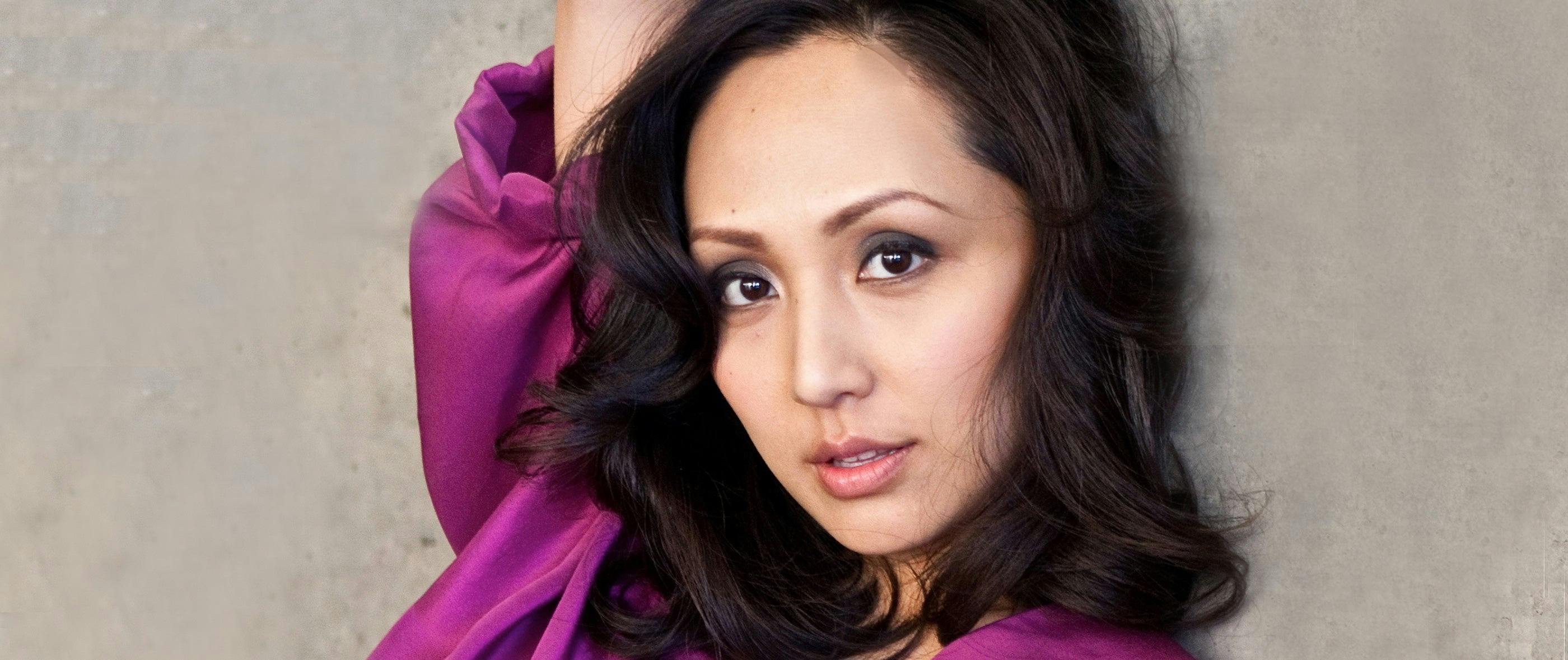
Linda Park is so excited that she can barely contain her enthusiasm. The actress, who played Hoshi Sato on Star Trek: Enterprise, will help christen the Antaeus Theatre Company’s brand-new arts space in Glendale, California, officially called the Kiki & David Gindler Performing Arts Center, by starring as Maggie the Cat in a production of Cat on a Hot Tin Roof, which began previews on March 16 and will open on March 23. She will not only portray Maggie opposite her real-life husband, Daniel Bess, but in the process, she’ll become the first Asian-American actress to tackle the part. Also on tap for Park: she’ll appear in several episodes of the acclaimed television series Bosch; season three drops on April 21. And she’s confirmed to appear at the Star Trek Las Vegas mega-convention in August. StarTrek.com chatted with Park about all of the above, and here’s what she had to say:
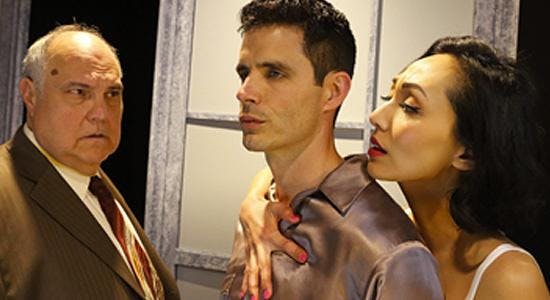
Let's start with Cat on a Hot Tin Roof. What does it mean to you to launch the new Antaeus stage space?
Oh, my gosh. We got in there later than expected, just last week. We spent most of our time in another rehearsal space. Some of the older Antaean members were so emotional because they've been with the company for over 20 years, since the late '80s. For them to see this actual structure as a home happen is a dream come true. It's like giving birth to a child. It really is. And I've only been with the company, I think, since around 2011. Even for me, it's very emotional to see this community, which I call my family in Los Angeles, to see us, through the work that we create, by the community we've built, by the passion we’ve had and invoked in other people to support us financially, to see that we've given birth to this performing arts center, is great.
And it is a center. It's got a classroom. It's got a black box. It's got a full library. We have a kitchen, a green room. There's a PA system. We're all very excited about this very futuristic, filtered water thing in the wall. You just put your bottle of water underneath and the sensor goes off and it fills it up. For a long time, and it's always been, "When is the last time someone has changed this Brita filter? Do I need to go to Ralph's and buy it myself? I don't care." Now it's like we have top of the line everything. We've had big theater people like Michael Ritchie come in and just be gobsmacked by the professional-ness of our performing arts center. And I love the feeling of the theater space itself. It reminds me of a lot of these great theaters in London, where I spent a good deal of time, at the Almeida and Young Vic, these places that were kind of off-Broadway places that were almost more legit than the West End. That's where the real stuff starts and it has just this high caliber of people. These places are intimate, but professional spaces, and that's the kind of space that we've built.
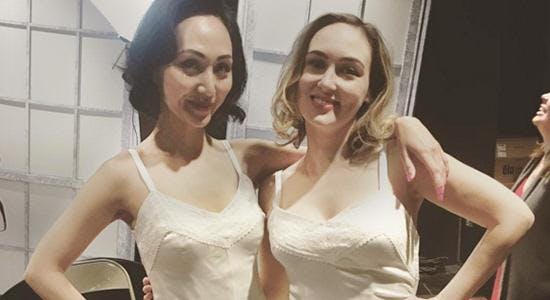
And you’re playing Maggie. What do you personally find interesting about her?
I have been dreaming of playing Maggie since I was 15 years old. I watched a movie called Double Happiness, with Sandra Oh. She plays this Asian-American actress whose parents tell her that she can't really be an actress because no one will want to put an Asian in movies. Of course, I can relate. In these theatrical scenes in the movie, she’d be in her bedroom and would say Maggie the Cat’s speeches from Cat on a Hot Tin Roof. Her bedroom would turn into a theater and stage lights would come on. I didn't even know the play then; I was just amazed by the movie that had a Korean-American actress. I thought, "Oh my God, look there's an example besides Joan Chen, of an Asian-American actress being in the movies." It was an indie, but still. It was a huge deal to me and the speeches she made as Maggie really touched me.
That made me go out and find the play and read it. The first time I read it, I was 15, and I think I just cried for a good hour. It tapped into something so deeply that I felt about the pain of what it is to not be able to communicate with things you love. The way that love, even though best intentioned, can be very hurtful. My experiences up until then were very painful experiences, not romantically, but in other ways they were. I had a lot of experiences of not... unconditional, simple love. I had very complicated paradigms.
When I read Cat on a Hot Tin Roof, I recognized what Tennessee Williams was trying to say, and it was a catharsis for me, as a troubled teen. I auditioned for all of my drama school auditions with Maggie the Cat. I got into most of the schools I auditioned for and I think largely because I had such a connection to that piece of work. I never thought I would be able to play her because it's made in the south and it's in the 1950's. I felt that the world barred me from his work because I was Asian.
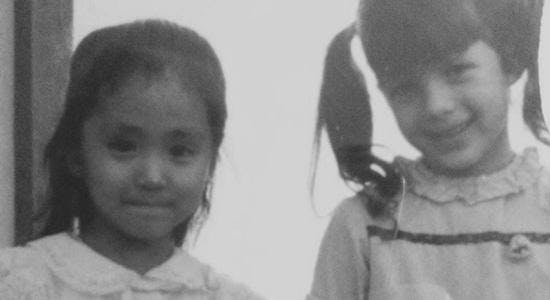
Which brings us to this point: You were born in Korea. On the one hand, it's big news that you're playing Maggie, but on the other hand, it shouldn't matter at all. What are your thoughts? Can your casting as Maggie be both celebrated and downplayed at the same time?
Here's what I think ... That's a complicated question, as right now race is a very complicated question in our current climate. Which is good. I think that glass needs to be shaken up because people got very complacent in saying that we're in a post-racial world. In the past couple of years, even before Trump, it's become very clear that we are not living in a post-racial world. Things may be a lot subtler or a lot under the radar, but these issues have not been taken care of. They've just been brushed under the carpet in some ways. First of all, I think that it is a very important thing... I don't like to say just the first Korean Maggie. I like to say the first Asian Maggie because there is such a juxtaposition in people's mind of the south… Gone with the Wind. The Help. You know, the deep south and during that time of Jim Crow segregation or the Civil War. People just think of them as completely juxtaposed, like those things can't live together.
I think to answer your question… yes. This is very important and, thankfully, LA Weekly is doing a whole piece about it, about me being the first Asian Maggie. I don't know that it can be downplayed, but I think what's interesting about how I'm approaching it, is leading up to auditions, Cameron and I, the director, had spoken a lot and he seemed totally open to an Asian Maggie. There's also… it has to work with our world, it has to be justified. I agree 100%. It's not like Shakespeare, where there's more fluidity of racial casting. It's very specific because of what's going on at that time with Jim Crow segregation, with the abolition of slavery, with the dynamics of black versus white.

Sounds like you did a great deal of research…
I did. I started doing a lot of research and this is where I'm so excited. I found out about this whole community of the Chinese in the Delta. They set up communities there and by the time the 1950's came, these Chinese, they were known as the third race of Mississippi. A lot of races went against them until they slowly worked their way into the community, just the way the Jews, or the Irish, or the Polish, and the Italians did, where they were an accepted part of society. They ran a lot of grocery stores. Many were spoken well of.
I have this picture of a Chinese little girl and it's her first day at Oak First Elementary in 1950. It’s an all-white elementary school in Clydesdale, Mississippi. Her parents were in court two years trying to get her into the white school. There were black schools and there were white schools -- and Chinese didn't want to send themselves, the children, to black schools, not the-well-to-do Chinese.
There's this whole part of the deep south that is not portrayed in these movies. You get the black and the whites, like Loving, or The Help or Mississippi Burning. What is not portrayed, that is an actual part of history, was this whole Chinese community that existed, not only in the Mississippi Delta, but in pockets all through the south. One of the books I'm reading is called Chopsticks in the Land of Cotton. and the other is Asian-Americans in Dixie. It's absolutely fascinating. When we tell these stories about history, this is a chance for me as an Asian-American woman to tell this version of history that has not been seen yet.

And you’ve applied that to Maggie in Cat on a Hot Tin Roof…
Yes. The way I see it is, within Cat on a Hot Tin Roof, that Maggie has a Chinese mother and my white father who came from a well-to-do family; black sheep, alcoholic, completely turned away from the family. By high school, both parents were dead. I went to live with my rich, old aunt because they were going to ... This is all stuff that Maggie says, but that's what validates how Maggie can say she's from society. That she's always been poor. Has never had money. Has always been an outsider. Has always been looked down on. The golden spoon was just out of her reach. All she has is... The only thing she has to stand on is a shred of some kind of belonging by who her father was. Money, that's her biggest hunger. It’s what drives her. She says, "I've been so disgustingly poor all my life." She constantly... To me at least, what makes me connect with Maggie on such a deep level is having to find, “Here is my place in this world where I belong.” On just a primordial level, it’s “I have a right to exist. I have a right to take up air.” As an immigrant, I feel that so, so, so ferociously, a very basic level of constantly needing to prove that I belong here. That's my Maggie.
Right in the middle of your run in Cat on a Hot Tin Roof you’ll be back on TV in Bosch. How was that experience?
That was great. The scripts felt very cinematic. The TV I’d done before, it was mostly network TV. Bosch is on Amazon, and it kind of felt like doing an independent film. That’s how I’d describe it. I’m not sure how much I can tell you about my role. I don’t think they want a lot out there yet. But I’m in five episodes, I think it is, and it’s a very emotional role because of what she does. She’s very different from anyone I’ve ever played, and that was fun to do. What’s interesting is I met Titus (Welliver), who was on Star Trek (Voyager), but I never got to work with him on Bosch. Our characters don’t have any scenes together.
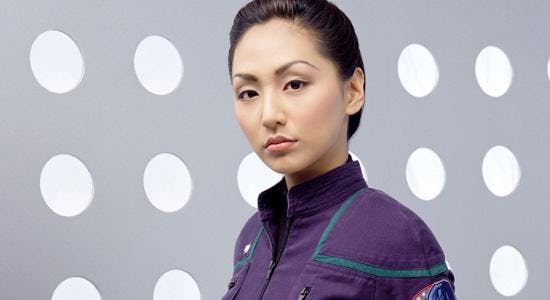
Let's talk Star Trek for a few minutes. How hard is it to believe that it's already 12 years since Enterprise ended?
I guess it’s really not too hard for me to believe, actually. So much has happened in my life. I've gone on to do many shows after that and I've gone on to get married. I've lived in different cities. This is really OK to me. It just seems like it’s all gone the way it was supposed to go.
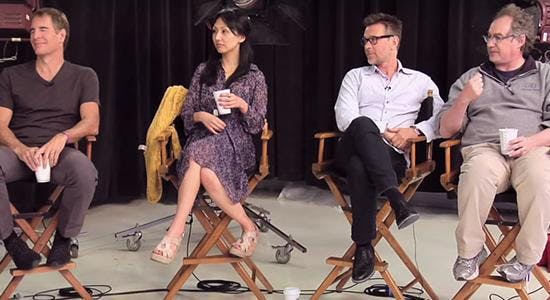
Not too long ago, the entire Enterprise cast did a sit-down conversation with Brannon Braga for the Enterprise Blu-ray extras. What was that like for you, to have everyone in one place again and revisit what worked and what didn't work with the show?
It was refreshing. We could talk about the show in the past tense and be candid about everything. We could be honest about asking Brannon questions and he was honest in his replies, too. It was great to see everyone again… Scott and John and Connor and Dom and Anthony and Jolene. Our lives have taken us in different directions. So it was great to be able to catch up on camera, and when we weren’t on camera. I see some of the guys at conventions once in a while, and sometimes we’ll be on panels together, a couple of us. But I hadn’t seen Jolene in a long time. And I think that was the first time we were all together since the show had ended. We’re all older now. Some of us have gotten married or had kids or moved. But it was nice to catch up, because Enterprise was four years together and a really big chapter in all of our lives.
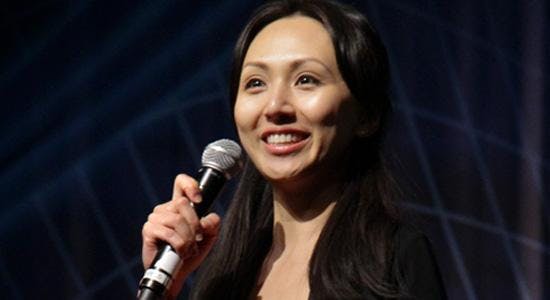
As you mentioned, you still do make the occasional convention appearance. You’ll be at Star Trek Las Vegas this summer, for example. Are you finding that more people are discovering and/or enjoying Enterprise?
Yes. I think with the Enterprise Blu-rays and Netlix that a lot of people either discovered us or rediscovered us. And I’m seeing and hearing that a lot at the conventions. There’s a whole new generation of Star Trek fans out there. I've been meeting so many young children who’ve had Enterprise introduced to them by their parents. So, that's been really exciting for me, to have young audiences get excited about the show and the work we did. We came on very late in that whole Star Trek run. We didn’t really get the promotion we should have. We never had a lot of eyes on us when we were on the air, so it’s nice to know that people are finding Enterprise now, all this time later. And there are people re-discovering it, too. Some of the fans maybe didn't give us a chance when we were on and they’ve gone back and realized it was really pretty good. So, the show will always reach somebody.
Cat on a Hot Tin Roof will run from March 23 until May 7 at the Kiki & David Gindler Performing Arts Center in Glendale, California, with two rotating casts. Go to http://antaeus.org/shows/cat/ for additional details and to purchase tickets.

